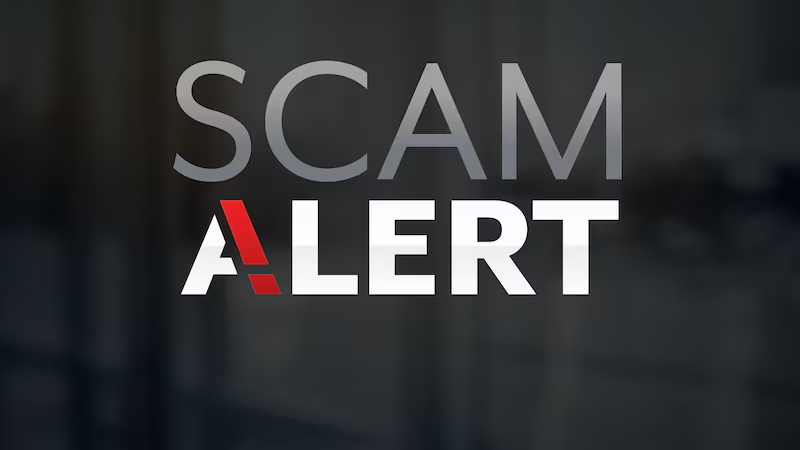[mc4wp_form id=”2320″]
Scams to Watch Out for During the 2024 Ghana Election
-
November 18, 2024
- Posted by: Evans Asare

Scams to Watch Out for During the 2024 Ghana Election and How to Protect Your Digital Life
With just 20 days left until the 2024 Ghanaian general election, the excitement and anticipation are building across the country. However, amid the political energy, scammers are also gearing up to exploit the public’s interest and emotions. As Ghanaians prepare to cast their votes and engage in the democratic process, cybercriminals will be using this critical time to target unsuspecting individuals through various online scams. These scams can compromise your personal information, financial security, and overall digital safety.
In this article, we’ll highlight five major scams to be aware of in the final stretch leading up to the election and offer actionable tips on how to protect your digital life in these crucial days.
1. Voter Registration Scams: Don’t Get Fooled by Fake Updates
As the election date draws closer, scammers will increasingly target voters with fake voter registration updates. These fraudulent messages may appear to come from the Electoral Commission (EC), requesting that you update your voter registration details or verify your information. These scams often contain links to phishing websites designed to steal your personal data, including your national ID number, phone number, and other sensitive details.
How to Protect Yourself:
- Verify official sources. Always check the official website or verified social media pages of the Electoral Commission for any updates on registration. The EC will never ask you to confirm your information via unsolicited messages.
- Avoid clicking on suspicious links. Do not click on links or download attachments in text messages, emails, or social media posts that you weren’t expecting. Instead, manually visit official websites to verify any information.
- Use trusted platforms. Only use official EC platforms to check your voter registration status.
2. Election Polling Scams: Don’t Share Personal Information
In the lead-up to the election, you might receive various surveys or opinion polls asking for your views on political candidates or national issues. While some polls are legitimate, others are fraudulent attempts to gather personal information, influence voter behavior, or even gain access to your accounts.
How to Protect Yourself:
- Do your research. Always verify the source of any polling or survey. Reputable polling companies or government organizations should be clearly identified.
- Avoid sharing sensitive data. Legitimate polls will never ask for personal information like your national ID, bank details, or passwords.
- Check for security. If you’re taking an online survey, make sure the website is secure by looking for “https://” in the URL.
3. Fake Political Donation Scams: Protect Your Contributions
Political campaigns often rely on fundraising, and with just weeks until the election, scammers will exploit this by creating fake donation pages. These fraudulent pages may appear to be associated with your preferred candidate or political party, asking for urgent financial support. They often impersonate legitimate political fundraising campaigns to steal money or personal information.
How to Protect Yourself:
- Verify donation requests. Always visit the official campaign website or the political party’s verified social media accounts for donation details.
- Don’t trust unsolicited messages. If you receive a message on WhatsApp, email, or social media asking for donations, double-check its legitimacy before sending any money.
- Use secure payment methods. Opt for trusted payment systems like mobile money or direct bank transfers through official channels when donating to a campaign.
4. Election Result Scams: Don’t Fall for Fake News or False Results
As election day approaches and results begin to come in, misinformation will spread rapidly—especially on social media. Fraudsters often use this opportunity to post fake election results or create unofficial “live updates” to deceive the public. These fake result websites or posts may also trick you into clicking on malicious links or downloading malware.
How to Protect Yourself:
- Rely on trusted news outlets. For accurate election results, always refer to major news organizations, the Electoral Commission’s official channels, or government sources.
- Be skeptical of unofficial sources. Avoid sharing or acting on election results posted by unverified websites or social media accounts.
- Double-check any claims. If you come across a result or news update that seems suspicious or too dramatic, fact-check it before sharing.
5. Fake Jobs and Contracts: Exploiting Election-Related Opportunities
With the election just around the corner, there may be increased opportunities for election-related jobs, such as polling station attendants or campaign staff. Scammers may create fake job listings or offer non-existent contracts, asking for personal information or payment for registration fees or processing costs.
How to Protect Yourself:
- Verify job offers. Legitimate political parties, government bodies, or electoral organizations will post job opportunities through official channels, such as their websites or trusted recruitment platforms.
- Don’t pay upfront fees. Never pay money upfront for a job or contract. Legitimate employers will not ask for payment in exchange for employment.
- Contact the organization directly. If you’re unsure about the legitimacy of a job offer, contact the organization or political party directly to confirm the opportunity.
Conclusion: Stay Safe in the Final Countdown to the 2024 Ghana Election
As Ghana approaches its 2024 general election, the next 20 days are crucial not only for political engagement but also for protecting your digital security. Scammers are aware of the heightened interest in the election and will exploit every opportunity to deceive you.
By staying vigilant, questioning unsolicited messages or offers, and relying on official sources, you can protect your personal information and ensure that your online activities remain safe during this critical time. Keep an eye out for fraudulent requests, don’t share sensitive data with unverified sources, and always verify before you click.
In the final countdown to the 2024 election, let’s prioritize both our civic duties and our digital security. Stay informed, stay alert, and protect your digital life as we all work towards a secure, fair, and transparent election.

BWER is Iraq’s premier provider of industrial weighbridges, offering robust solutions to enhance efficiency, reduce downtime, and meet the evolving demands of modern industries.
Choose BWER for trusted weighbridge systems in Iraq, offering customized solutions to optimize your industrial operations and ensure precise weight measurement every time.
cialis coupon free trial: cialis coupon walmart – overnight cialis delivery usa
where to buy generic cialis ? order generic cialis or tadalafil 40 mg with dapoxetine 60 mg
https://www.play.net/bounce/redirect.asp?URL=http://tadalaccess.com no presciption cialis
cialis before and after pictures best place to buy tadalafil online and cialis price per pill cialis tadalafil
https://tadalaccess.com/# cialis buy online canada
tadalafil citrate: Tadal Access – tadalafil (exilar-sava healthcare) version of cialis] (rx) lowest price